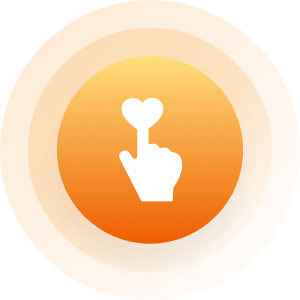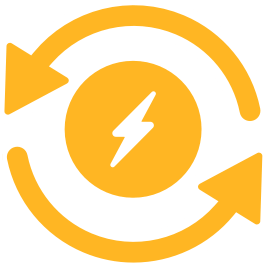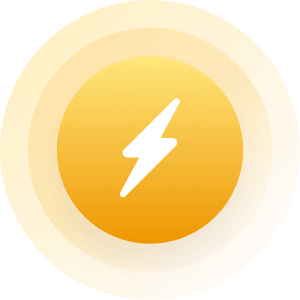| Topic: When Presidents Lead | |
|---|---|
|
A very interesting series
http://www.yahoo.com/news/john-f-kennedy-cutting-deal-khrushchev-save-world-090038340.html amongst interesting observations: about Nixon: Ultimately, Nixon was the right man to lead the United States in that time in the Cold War. He was brilliant in diplomacy with both Russia and China. But his personal insecurities undermined him and eventually destroyed him. Most Americans have written off Nixon as a terrible president, and in some ways, he was. He was the only president to be driven from office. But he was certainly a great president when it came to opening up China. Most people have a vague memory of that. But they need to have a stronger memory of how important it was for an American president to reach out to an enemy like that and open the door. about Carter: At the time Jimmy Carter takes office, the Israelis and the Egyptians had fought four wars in the previous 25 years. Egypt and the other Arab countries don’t even recognize that Israel has the right to exist. So the stakes were immensely high. The only army that could actually destroy Israel was the Egyptian army, and Carter took the Egyptian army off the table. Not a shot has been fired in the 40 years since. On Reagan: Reagan and Gorbachev thought that Reykjavik had advanced goals of nuclear arms reduction — and pretty soon they were on the road to doing that. Finally, in 1988, Reagan and Gorbachev signed the Intermediate-Range Nuclear Forces Treaty. It was the first agreement in the history of the Soviet Union and the United States that reduced nuclear arms. Ridding the world of nuclear weapons is still the most powerful idea in the nuclear age, and no two people did more to advance it than Reagan and Gorbachev. On Obama: Obama didn’t make up his mind definitively until very late. He went around his war cabinet and asked them all to give their opinions. Secretary of Defense Robert Gates said essentially, “Don’t do the strike. There are too many risks here.” Gates, don’t forget, had been in the White House when President Carter ordered the disastrous Iran rescue operation. And every time there was a meeting he’d remind Obama that another Democratic president had mounted a special operation in a country a long way away. In the end, that had contributed to Carter becoming a one-term president. Vice-President Joe Biden also said, “Don’t do this operation. We’re going to anger the Pakistanis.” Obama went back to his residence, thought about it and came down at 8 the next morning and told his top national security advisors “Go!” I think this is a classic example of presidential leadership. He had plenty of his advisers saying “Don’t do this.” But that’s the nature of real presidential decision-making – you don’t have all the answers. It was easy to say after bin Laden was killed that that’s the decision I would have made. That’s supereasy to make that claim after you know the outcome. We know what history looks like looking backward, but it’s lived forward. You have to make a decision. the series highlights interesting points, mainly for me, that Good leaders can make bad choices, and bad leaders can make good ones. And often how we define them therefore, as 'good and bad leaders' falls only on what we choose to focus on. |
|
|
|
|
|
the series highlights interesting points, mainly for me, that Good leaders can make bad choices, and bad leaders can make good ones. And often how we define them therefore, as 'good and bad leaders' falls only on what we choose to focus on. 
|
|
|
|
|
|
When Presidents Lead
Politicians are not supposed to lead, they are supposed to direct. They are supposed to work for the people, not the other way around... I don't understand why this is such a difficult concept to understand? 
|
|
|
|
|
|
When Presidents Lead
Politicians are not supposed to lead, they are supposed to direct. They are supposed to work for the people, not the other way around... I don't understand why this is such a difficult concept to understand? 
its not, its more like semantics direct: control the operations of; manage or govern. lead: be in charge or command of. the person with authority to make the decision can be said to have the 'lead' or to be 'leading' the piece cited is about moments when a president has had to make a difficult call under their personal authority, or LEAD. |
|
|
|
|
|
When a president acts on a hidden threat he is directed on the actions he is allowed to take by the people.
If he takes actions that are not sanctioned, he is in dereliction of the duties and responsibilities of the office he is appointed to. Appointed by the people to direct their will, not his/hers. So if the president says he is going to build a wall at the US-Mexican border and remove all but one road leading to Mexico. If the people don't want that and he does it anyway, he is in violation of his oath to office. This holds true for any politician in any level of government on any action initiated by the politician. Failure to enforce this causes the US to be a kingdom or worse, a dictatorship. If we elect politicians to office so they can make our decisions for us, we are causing our own problems. If we tolerate politicians that act on their own agendas or the agendas of a select few, we are causing our own problems. BUT, if you look at the different levels of government you will see that we are doing just that very thing, over and over and over. It breaks our unity as a nation, as a society and as a community. What amazes me is that most people don't see it. Ostrich Syndrome, Sheeple Syndrome are two ways to define it. We tolerate poor candidate nominations, we tolerate poor politician performance because its easier and if we don't have to address it we won't. Problem is, the longer we condone poor politics the deeper the problem gets ingrained. Then, when we do finally wake up and try to fix the problem, it requires more work. The problem isn't the politician, its the people that tolerate it. If the people are not in possession of all the facts or do not see the ramification of cause and effect, the politician is supposed to enlighten the people so they can make an informed, wise decision. If anyone has looked at and read our current legislation most policies and law have riders that include other things that makes approval on one aspect, approve those riders as well. This is sneaky and dishonest to the intent of policy and law. Each policy, each law should have its own description an approval/disapproval should be on that subject only. And yes, that is a lot of work but that is what we need from our politicians, for them to do their jobs. Policies that should be implemented are not being implemented because of subjects added to the policy that the people don't want. On the other hand, policies are being implemented that shouldn't be implemented because of the subjects added to that policy. If each subject had its own legislation, only the policies the people want will be implemented, policies the people do not want will not. Then, when the president vetoes a policy that the people do want or passes a policy that the people don't want, that president becomes accountable to the people. If the president knows something that the people do not know and doesn't inform the people of all the facts, they are again in violation of the people's trust to act in their interest. This is why I feel the president or any politician is not a leader. To be a leader, implies someone is a follower. If anything, the very definition of a politician is to be a follower of the lead of the people they represent. |
|
|
|
|
|
Edited by
msharmony
on
Thu 09/20/18 10:32 AM
|
|
|
okay. Understood. My use of lead was based more on the definition I provided. I use the word in the sense of paving the way, leading the way, taking the lead, or setting an example.
I dont consider myself a leader, but there are times when I have to take the lead. I think that is true of anyone who ever has a position where the buck stops with them. I feel there are times when Presidents must also take the lead, and decisions they are expected to take the lead (be the final word) on, even given the guidelines in which they must come to that decision. I also dont see a President as a dictator, they are there to protect the constitution and perform the roles as outlined in it, but some of those roles call for them to be 'commander' , which to me implies leadership The President shall be Commander in Chief of the Army and Navy of the United States, and of the Militia of the several States, when called into the actual Service of the United States; he may require the Opinion, in writing, of the principal Officer in each of the executive Departments, upon any Subject relating to the Duties of their respective Offices, and he shall have Power to grant Reprieves and Pardons for Offenses against the United States, except in Cases of Impeachment. but as noted, its more semantics than a disagreement on roles ... |
|
|
|
|
|
okay. Understood. My use of lead was based more on the definition I provided. I use the word in the sense of paving the way, leading the way, taking the lead, or setting an example. I dont consider myself a leader, but there are times when I have to take the lead. I think that is true of anyone who ever has a position where the buck stops with them. I feel there are times when Presidents must also take the lead, and decisions they are expected to take the lead (be the final word) on, even given the guidelines in which they must come to that decision. I also dont see a President as a dictator, they are there to protect the constitution and perform the roles as outlined in it, but some of those roles call for them to be 'commander' , which to me implies leadership The President shall be Commander in Chief of the Army and Navy of the United States, and of the Militia of the several States, when called into the actual Service of the United States; he may require the Opinion, in writing, of the principal Officer in each of the executive Departments, upon any Subject relating to the Duties of their respective Offices, and he shall have Power to grant Reprieves and Pardons for Offenses against the United States, except in Cases of Impeachment. but as noted, its more semantics than a disagreement on roles ... I'm not really saying you are wrong but I feel you are also not right at a certain level. Any politician's job is to be the final say. Lets put the president temporarily out of the equation. Lets look at a town mayor. The people of a town nominates a fellow citizen to hold the office of mayor. An election is held. In this election another citizen or more are also nominated for the same position. The people then vote on who gets to hold office. The majority votes for one candidate and that citizen then becomes mayor. The votes that caused that citizen to become mayor were from other citizens that believe this one citizen will represent them and their values while in office, better than the other citizens that were nominated. One mayor, the mayor listens to the will of the people. Groups of people often don't agree unanimously. The mayor looks at the details of the issue and finds the majority agreement of those he represents and makes a decision based on what they want. If he know things that affect such a change, it is his duty to inform his citizens of all the details so they can make an informed decision on how to proceed. Once the people decide, then the mayor makes it so. The problem is, this is not happening at any level of government. We have individual citizens making decisions without the consent of the people they represent. They are not acting as representative of the people, they are acting according to their own will or the will of smaller groups. Policies become the mayor's policies, the senator's policies, the congressman's policies, the president's policies and so on. The people's policies get ignored or pushed aside and are only enacted to placate civil unrest. Yes, the president is the Commander In Chief of the military. But, the president commands that military according to the will of the people, well, that is what is intended anyway. Yes, the buck stops here at the president. That is not, however, intended to be power to make decisions personally. It is intended to give the president the final say in how he/she enacts the will of the people. The president makes a decision based on what the people want. The problem is the politicians in office enact their will instead of the people's. It is a violation of the intent of the office. The intent of the office is to elect a citizen to represent the people, not the other way around. In this sense, all politicians are meant to be followers, not leaders. Their authority is granted by the people they represent. Basically, what we have in government right now is a neighbor coming into your house and changing around the furniture as he wants it. Then, you sit there and live with it, complaining about it but never actually evicting that neighbor out of your house, then changing the furniture to how you want it. Your authority has been superseded by someone else. And, what is worse, is that you invited that neighbor in and continue to invite neighbors in that all do the same thing. |
|
|
|
|








